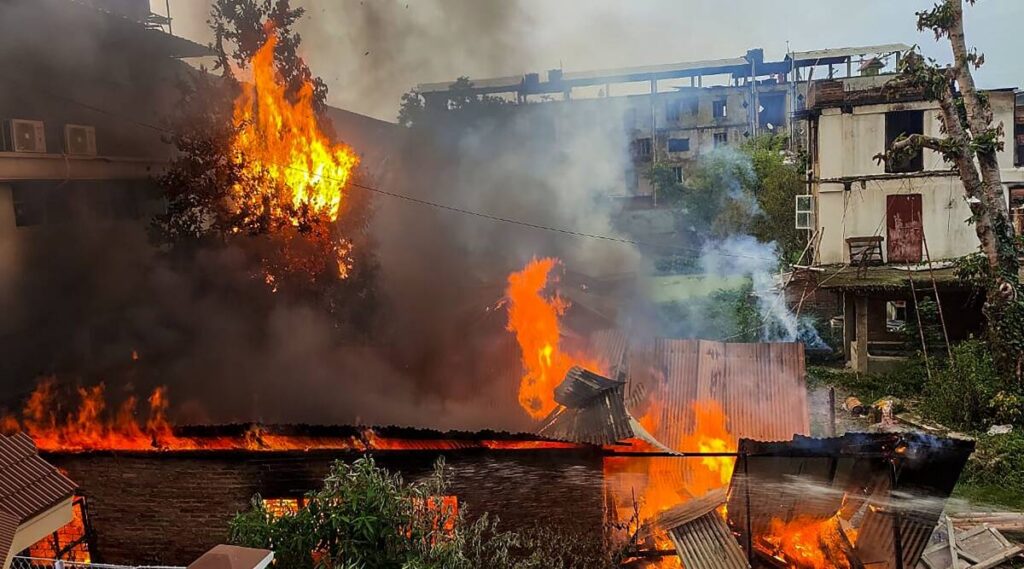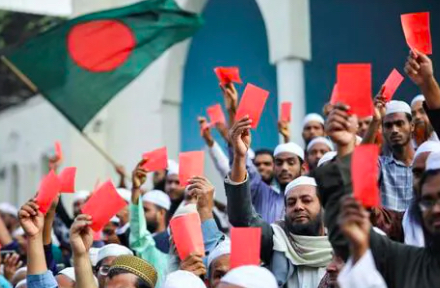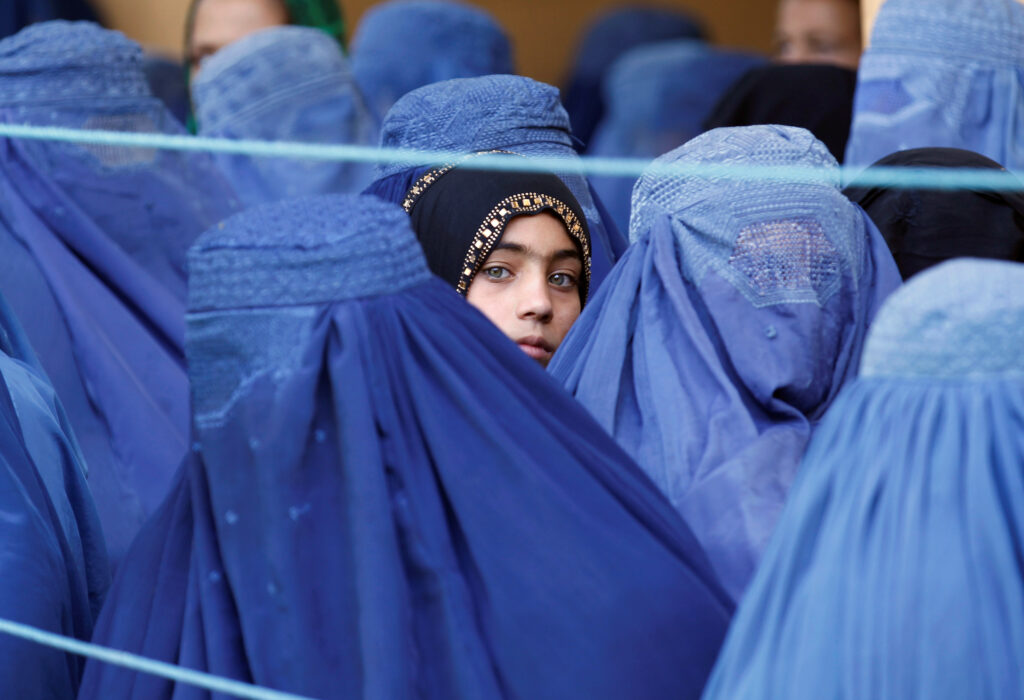MANTRAYA POLICY BRIEF#47: 19 JUNE 2023
BIBHU PRASAD ROUTRAY
Abstract
Unprecedented violence between the majority Meiteis and the minority Kuki tribals has turned Manipur into a theatre of instability. The violence which started around the demand for ST status for the Meiteis has widened the schism between the two communities, resulting in almost a permanent demographic and emotional disconnect among them. The state government has failed as an enforcer of unity and order. The Union government, in these circumstances, needs to step in to contain violence and initiate a process of dialogue and healing before it is too late.

Introduction
Rampaging mobs burnt down the residences of two ministers on 14 and 15 June at the heart of Imphal, Manipur’s capital city. This came after nine members of a raiding mob were killed by armed civilian village guards at late-night in Imphal East district’s Khamenlok village. The death toll in the ethnic violence between the non-tribal Meiteis and the Kuki tribals since 3 May has reached at least 109. Additionally, scores have been injured and over 50000 have been displaced. In the subsequent days, mobs clashed with the security forces attempting to burn down the houses of political leaders[1]. Ethnic violence in the state, which started around the issue of granting Scheduled Tribe (ST) status to the majority Meiteis, shows no signs of abating. This unprecedented violence, even while occurring in a far corner of India, does not augur well for the security and stability of the country.
Peace Committee: A Non-starter
While Khamenlok, a Kuki village, has been the main battleground for the Kuki militants and the Meiteis, ethnic violence has engulfed at least 11 of the state’s 16 districts, which continue to witness sporadic clashes, acts of arson including the burning of houses, and firing. The long-existing schism between the two communities has widened every passing day and has reached a state where it appears completely unbridgeable. Several instances of this trend were visible around the Ministry of Home Affairs (MHA)’s constitution of a 51-member Peace Committee on 10 June.
Headed by the state governor, the Committee is tasked with initiating a dialogue process with the two communities to bring peace to the state. However, by 12 June, both Meitei, as well as Kuki civil society organisations, distanced themselves away from the move. Meitei organisations have objected to the ‘narco terrorism’ of the Kukis[2], whereas the Kuki organisations have opposed the inclusion of Chief Minister N Biren Singh in the Committee. Further, several members—Meiteis and Kukis—have withdrawn alleging that they have been included in the Committee without their consent. It is improbable that the peace committee will be able to deliver anything substantial.
Home Ministry’s Approach
The constitution of the Peace Committee demonstrated the Union government’s reluctance to play any significant role in bringing peace to the state, apart from providing relief and rushing in security force personnel. The Prime Minister is yet to make a statement on the issue. The Home Minister visited the state only after 26 days of the start of the violence.[3] And the MHA’s approach remains directed at ‘fact finding’ and locating ‘culpability in crime’, rather than seeking a solution to the ongoing impasse. On 9 June, the Central Bureau of Investigation (CBI) formed a 10-member special investigation team (SIT) under a DIG-rank officer to probe six cases related to the Manipur violence referred to it by the state government.[4]
It is apparent that the MHA primarily wants the BJP-led state government to remain in charge. In normal circumstances, this would have been ideal. However, the fact that the Chief Minister has lost his credibility among the Kukis who consider him biased and among the other Meitei political parties makes him unsuitable to be part of any initiative to bring order to the state. The Kukis consider Biren Singh a ‘perpetrator’ of the violence. They demand his removal and imposition of President’s Rule in the state.[5]Meitei organisations, on the other hand, allege that the security forces deployed in the state are protecting the Kukis.
Call for a Separate Administration
The Kuki clamour for a separate administration continues to grow, inviting calls for retribution from the Meiteis. Nemcha Kipgen, the minister whose official residence was burnt on 14 June, belongs to the ruling Bharatiya Janata Party (BJP) but is among the 10 Kuki Members of the Manipur Legislative Assembly who have raised the demand for a separate administration.[6] In the last few days, hoardings with slogans such as ‘Separation is the Solution’ and ‘Justice precedes Peace’ have been erected in the Churachandpur district. Given that the tribals primarily live in 90 percent of the state’s landmass, a ‘separate administration’, which could be a precursor to dividing the state, is an untenable proposition. However, while such demands have existed for decades in the state, the three following trends make the present scenario extremely precarious.
Firstly, the ethnic polarisation has clearly placed a stark dividing line between the two communities, transforming them from somewhat reluctant and peaceful cohabitors to revenge-seeking adversaries. According to reports, the Imphal valley has been cleared of Kuki presence and the Hills have turned into extremely dangerous places for the handful of Meiteis who still live there. Media reports suggest that previously Kuki-dominated villages now bear Meitei names and vice versa.
Secondly, as part of an outright ‘ethnicization of politics and civil society activities’ in the state, politicians and leaders of community-based organisations have transmuted into self-seeking torchbearers of their own communities’ interests, shunning the language of peace and embracing violence and separatism as justifiable means and goals. Roadblocks set up by women groups[7] to prevent the movement of security forces and by the tribal groups to stop the supply of essential items from reaching Imphal Valley are examples of this trend. This has further opened up a vast space for the ‘local volunteers’—armed men claiming to be defending their communities—and the dormant militant organisations to step in and use violence to gain legitimacy. The expanded presence of security forces, therefore, has limited utility.
Thirdly, since 3 May, free-floating weapons and ammunition either looted from or given away by the state police have made the atmosphere, where violence is the norm, extremely dangerous. It is unimaginable anywhere in the country that close to 3000 official weapons with ammunition have continued to remain in the hands of the ‘local volunteers’ for a month and a half. In spite of the appeal made by the Union Home Minister[8] during his visit to the state between 29 May and 1 June, and the launch of combing operations by the security forces since 4 June, only one-fourth of the 4000 missing weapons have either been surrendered or recovered.
Way Forward
On 13 June, about ten Meitei political parties demanded a separate session of the legislative assembly for a detailed discussion on the ongoing turmoil. However, the fact remains that stopping ethnic clashes is an essential prerequisite for any initiation of peace-making efforts. Not only that the missing weapons must be recovered soon, but the free movement of mobs and arsonists also needs to be curbed. Since the state police appear to have lost the ability to maintain order and may have played a partisan role, the Central Armed Police Forces and the Assam Rifles need to be in charge. Lastly, it is necessary for the Union Government to take a lead role to stabilise the state. Since 3 May, the situation has drifted owing to its reluctance to intervene decisively in a state governed by the BJP. That policy needs a quick revisit.
END NOTES
[1] “Manipur Violence | Mobs clash with security forces in Imphal; attempts at torching houses of BJP leaders”, The Hindu, 17 June 2023, https://www.thehindu.com/news/national/other-states/manipur-violence-mobs-clash-with-security-forces-in-imphal-attempts-at-torching-houses-of-bjp-leaders/article66978964.ece.
[2] “Manipur civil society organizations seek immediate action against narco-terrorist aggression”, India Today, 1 June 2023, https://www.indiatodayne.in/manipur/story/manipur-civil-society-organizations-seek-immediate-action-against-narco-terrorist-aggression-569211-2023-06-01.
[3] “Home Minister Amit Shah in Manipur, to review security, hold talks with Kukis, Meiteis”, The Indian Express, 30 May 2023, https://indianexpress.com/article/india/amit-shah-visit-imphal-manipur-violence-8634707/.
[4] “CBI forms SIT to probe Manipur violence cases, re-registers 6 FIRs referred by state”, India Today, 9 June 2023, https://www.indiatoday.in/india/story/cbi-forms-sit-manipur-violence-cases-re-registers-firs-referred-by-state-2391022-2023-06-09.
[5] “’We Want President’s Rule in Manipur, CM Removed’: Kuki Leaders List Demands”, The Quint, 1 June 2023, https://www.thequint.com/news/india/manipur-violence-kukis-meiteis-demand-amit-shah.
[6] “Ten Kuki MLAs from Manipur demand ‘separate administration’”, The Hindu, 12 May 2023, https://www.thehindu.com/news/national/ten-kuki-mlas-from-manipur-demand-separate-administration/article66843874.ece.
[7] “Manipur: Supplies hit by blockades by tribals, Meitei women”, India Today, 17 June 2023, https://www.indiatoday.in/india/story/manipur-violence-supplies-hit-by-blockades-by-tribals-meitei-women-2394131-2023-06-17.
[8] “140 weapons surrendered in violence-hit Manipur after Amit Shah’s appeal”, Hindustan Times, 2 June 2023, https://www.hindustantimes.com/india-news/manipur-violence-140-weapons-surrendered-after-amit-shahs-appeal-101685694850755.html.
(Dr. Bibhu Prasad Routray is the Director of MISS. This Policy Brief has been published as part of Mantraya’s ongoing “Fragility, Conflict, and Peace Building” project. All Mantraya publications are peer-reviewed.)
To read previous Mantraya Policy Briefs CLICK HERE



